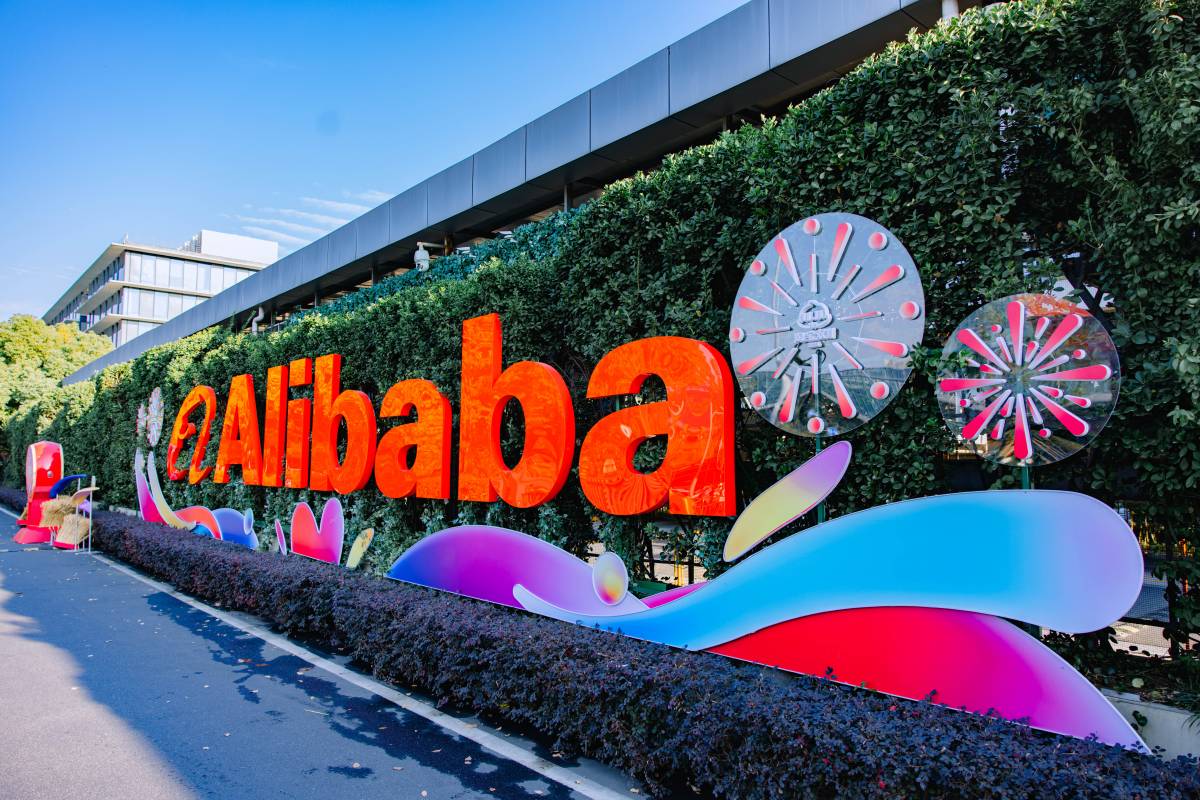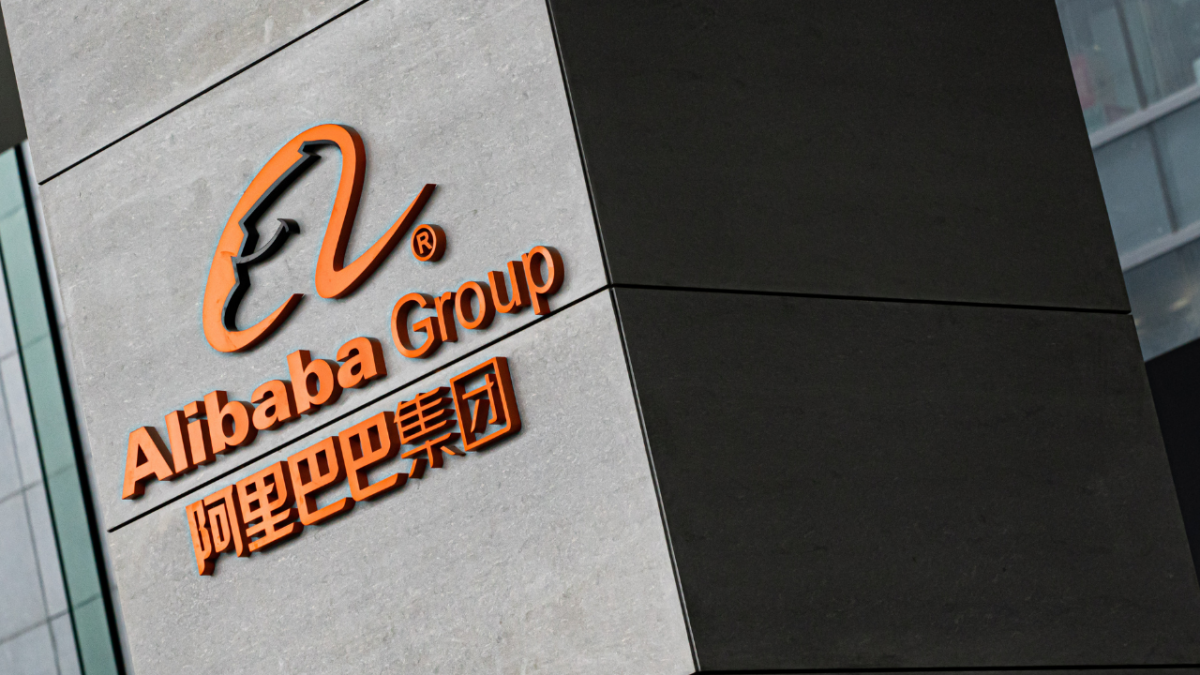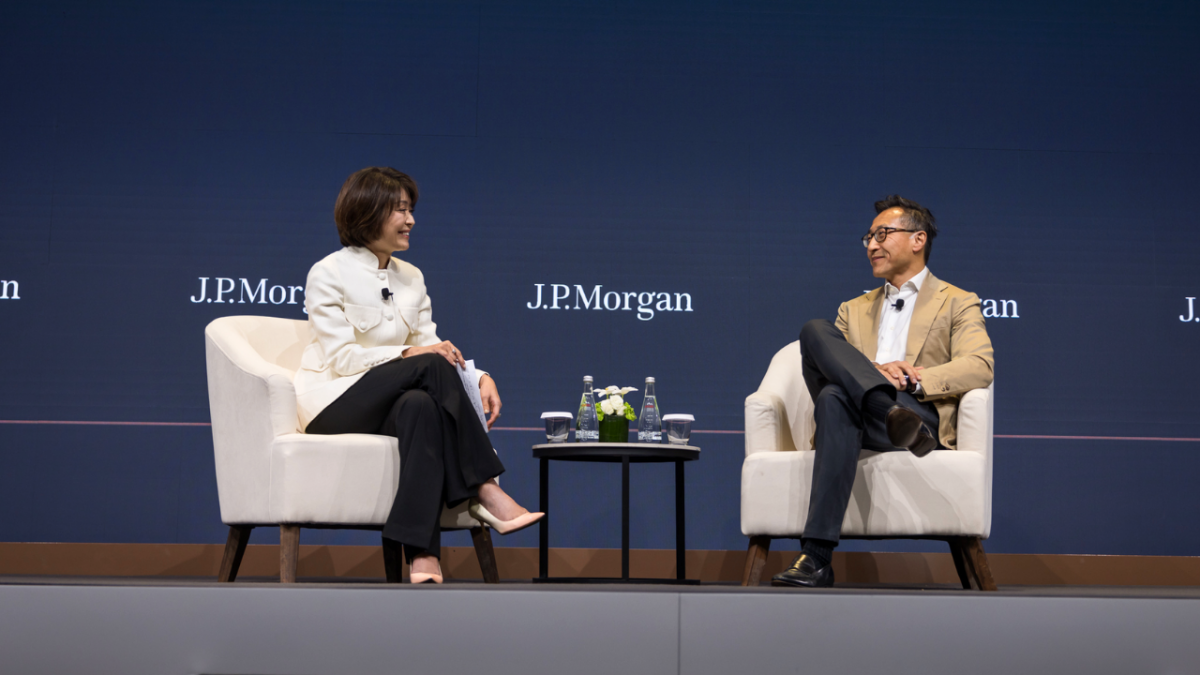


Alibaba Group said it would pay its first-ever dividend of $2.5 billion and reported a solid set of second-quarter results.
The holding company’s new leadership team, Chairman Joe Tsai and CEO Eddie Wu, laid out a strategy to embrace the opportunities created by advances in artificial intelligence.
“We are committed to investing for growth and making bold decisions where necessary,” said Wu in a statement on Thursday.
The group has plenty of firepower at its disposal. Alibaba ended the quarter with $63 billion in net cash and has generated $27 billion in free cash flow over the past 12 months.
“Alibaba has never been in a better financial position to invest for the growth of our businesses,” said Tsai on a call with analysts.
While management’s priority is investing, they are looking at multiple ways to deliver value to shareholders. Alibaba’s board of directors approved the annual cash dividend for fiscal year 2023 of $0.125 per ordinary share, or $1.00 per ADS. Plus, the group’s share repurchase plan still had $13 billion in dry powder as of Thursday.
Alibaba has never been in a better financial position to invest for the growth of our businesses
Solid Results
In March, Alibaba embarked on a major reorganization engineered to unlock value and spur its businesses to be more nimble.
“Alibaba Group delivered a solid quarter, marked by renewed momentum and energy across multiple businesses as a result of our strategic reorganization,” said Wu.
During the three months ended Sept. 30, Alibaba’s revenue climbed 9% year-over-year to RMB224.79 billion ($30.81 billion), in line with the consensus forecasts.
Adjusted EBITA, a non-GAAP measurement of core earnings, increased 18% year-over-year to RMB42.85 billion for the quarter. Quarterly non-GAAP net income climbed 19% year-over-year to RMB40.19 billion.
Showcasing why the restructuring was undertaken, Alibaba International Digital Commerce Group (AIDC) delivered robust growth, posting second-quarter revenue 53% higher year-over-year. Losses narrowed at Alibaba’s Local Services and Digital Media Entertainment businesses.
Cloud Reset
Alibaba's new management team conducted a strategic review of its business in recent months and found that in the last fiscal year, the group's return on invested capital (ROIC) was in the single digits. Over the next few years, they aim to lift that metric into the double digits.
Management is also exploring how to strike the right balance between independence and cooperation across the business groups. Symbiotic relationships will be nurtured, as between Cainiao and its e-commerce businesses, and with Alibaba Cloud whose advanced technologies undergird its entire ecosystem.
The holding company said that in light of the recent expansion of U.S. restrictions on exports to China of advanced computing chips, it believes a full spin-off of Cloud Intelligence Group may not enhance shareholder value as it had originally planned. So, it has decided not to pursue the full spin-off while continuing to evaluate alternatives to highlight the value of Cloud Intelligence Group.
"Rather than focus on financial engineering, we'd rather focus on figuring out how to grow the cloud business," Tsai told analysts.
Alibaba added that the IPO of technology-powered grocery chain Freshippo has been put on hold to evaluate market conditions and other factors that would contribute to a successful transaction to enhance shareholder value.
Other businesses are pushing ahead with their capital-markets plans. AIDC is preparing to raise funds externally, while Alibaba’s logistics arm Cainiao has applied for an IPO in Hong Kong.
China Retail
Consumer sentiment in China is gradually recovering post-pandemic. In October, the country’s total retail sales of consumer goods rose 7.6% year-on-year. Still, against a backdrop of global economic uncertainty, mass affluent and lower-income Chinese consumers have sought value for money, according to retail experts.
Alibaba’s largest revenue generator, Taobao and Tmall Group’s China commerce retail business, grew quarterly revenue by 3% year-on-year. The business’s quarterly customer management revenue, mainly marketing services and commissions on transactions, gained 3% year-over-year.
In May, Taobao and Tmall Group unveiled a three-year plan to focus on users, build an ecosystem for brands and merchants, and realize AI technology-driven innovation. Its Taobao app grew users organically year-over-year in September.
Taobao and Tmall Group released a slew of AI products and services to help improve merchants’ operating efficiency, including tools for new online store designs, product photos and description generation, customer service, and financial and order management.
In August, Taobao and Tmall Group upgraded a key advertising platform, dubbed the Wanxiangtai Unbounded Edition, featuring proprietary AI technologies. Alibaba reported strong adoption of Wanxiangtai Unbounded Edition among new and existing merchants during the quarter.
Taobao and Tmall Group's strategy faced a major test during 11.11, the world's largest shopping festival. At the end of its campaign, the business said it had grown the number of merchants, transacting buyers, orders and GMV compared with a year earlier.
Global Connections
International retail commerce was a highlight of second-quarter results. Marketplace AliExpress and Southeast Asian e-commerce platform Lazada registered a double-digit quarterly jump in orders year-over-year.
AIDC said the quarterly revenue of its international retail commerce business, including Lazada, AliExpress, Trendyol, Daraz and Miravia leaped 73% year-over-year.
AIDC’s losses significantly narrowed year-over-year primarily because margins improved at Lazada and Trendyol. The improvement was partly offset by the increase in investment in its new businesses, such as local e-commerce platform Miravia in Spain, and AliExpress’s Choice.
"In a few more quarters from now, Choice will account for more than 50% of the number of orders at AliExpress," said Jiang Fan, AIDC's CEO.
A broader array of logistics services supported international commerce, such as Cainiao’s five-day delivery service. Cainiao’s quarterly revenue grew 25% year-over-year.
Gen AI Advances
Generative AI could drive a 7% increase in global GDP and lift productivity growth by 1.5 percentage points over a decade, according to a report by Goldman Sachs, an investment bank.
Cloud Intelligence Group released an upgraded version of its proprietary large language model, Tongyi Qianwen during the quarter and its open-source AI developer community ModelScope has gathered over 2,300 AI models, attracting 2.8 million AI developers and over 100 million cumulative model downloads since launch.
"Today, we stand at the beginning of a new era of technology centered on AI. The next decade will bring dramatic changes worldwide, creating immense uncertainties and opportunities in parallel. Alibaba is embarking on a new entrepreneurial journey and is fully prepared to devote its all to driving technological transformation," said Wu.





